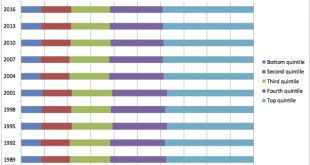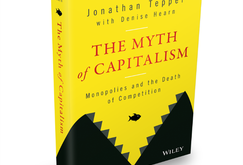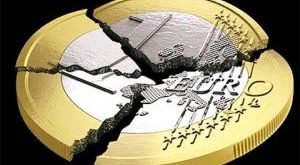from Lars Syll We recommend dropping the NHST [null hypothesis significance testing] paradigm — and the p-value thresholds associated with it — as the default statistical paradigm for research, publication, and discovery in the biomedical and social sciences. Specifically, rather than allowing statistical signicance as determined by p < 0.05 (or some other statistical threshold) to serve as a lexicographic decision rule in scientic publication and statistical decision making more...
Read More »The US is not that important to China
from Dean Baker It is common to see stories that have China’s economy reeling as a result of the Trump tariffs. While it does seem that China’s economy is experiencing difficulties, it is hard to tell a story where Trump’s tariffs are a major factor. First, as I pointed out in the past, China’s trade surplus has actually risen in 2018 compared to 2017. In the first 10 months of 2018, (Census is not releasing new data because of the shutdown), China’s surplus on goods trade was up 11.5...
Read More »A specific plan to change economics textbooks
from Tim Thornton and WEA Commentaries The importance of economics textbooks Economics textbooks are central to how the discipline of economics reproduces itself and how it convinces society of the legitimacy of its conclusions. Whilst writing a textbook does not have the glamour or esteem of producing highly cited research, it is perhaps at least as important. As Paul Samuelson, the father of the modern economics textbook remarked,“I don’t care who writes a nation’s laws – or crafts its...
Read More »Cutting wages — the wrong medicine
from Lars Syll A couple of years ago yours truly had a discussion with the chairman of the Swedish Royal Academy of Sciences (yes, the one that yearly presents the winners of ‘The Sveriges Riksbank Prize in Economic Sciences in Memory of Alfred Nobel’). What started the discussion was the allegation that the level of employment in the long run is a result of people’s own rational intertemporal choices and that how much people work basically is a question of incentives. Somehow the...
Read More »Resolution: mind the gap
from David Ruccio We’re all done singing to “days gone by” (even though no one really knows the lyrics). But, unless we change our tune and resolve to fundamentally alter the way the economy is organized, we’re going to have to face up to the problem that’s been haunting the United States for decades now: growing inequality. And it’s only getting worse. Part of the problem stems from the increase in market concentration in the United States. According to a recent research paper by Joshua...
Read More »Why Bayesianism has not resolved a single fundamental scientific dispute
from Lars Syll Bayesian reasoning works, undeniably, where we know (or are ready to assume) that the process studied fits certain special though abstract causal structures, often called ‘statistical models’ … However, when we choose among hypotheses in important scientific controversies, we usually lack such prior knowledge of causal structures, or it is irrelevant to the choice. As a consequence, such Bayesian inference to the preferred alternative has not resolved, even temporarily, a...
Read More »new issue of WEA Commentaries
WEA Commentaries Volume 8, Issue No. 5 Download the issue as a PDF In this issue Raúl Prebish’s Unpublished Manuscripts Esteban Pérez Caldentey Resolutions to improve debates on economic policy in 2019 Dean Baker A specific plan to change economics textbooks Tim Thornton Nine years with euro crisis – time to think anew Trond Andresen, Steve Keen and Marco Cattaneo Support-bargaining and money-bargaining: a restatement Patrick Spread Announcements and WEA contact details Please support...
Read More »Capitalism’s deniers
from Shimshon Bichler and Jonathan Nitzan A new, capitalism-denying book is on the shelves, and it makes a stunning discovery: ‘Capitalism without competition is not capitalism’! Distortions: Capitalism Denied Capitalist crisis, like climate change, tends to breed ‘capitalism deniers’. The problem, argue the deniers, lies not in capitalism but in its ‘distortions’. In its pure form, they maintain, capitalism is the best of all possible worlds. But to the deniers’ chagrin, contemporary...
Read More »20th anniversary for the euro — no reason for celebration
from Lars Syll When the euro was created twenty years ago, it was celebrated with fireworks at the European Central Bank headquarters in Frankfurt. Today we know better. There are no reasons to celebrate the 20-year anniversary. On the contrary. Already since its start, the euro has been in crisis. And the crisis is far from over. The tough austerity measures imposed in the eurozone has made economy after economy contract. And it has not only made things worse in the periphery countries,...
Read More »Cesspool “True Crime” Stanley Dean Baker
Source: https://www.podbean.com/media/share/pb-db653-a39c4f A semi true crime profile on Stanley Dean Baker a cannibal from Montana, with really bad jokes mixed in! Enjoy.
Read More » Real-World Economics Review
Real-World Economics Review








